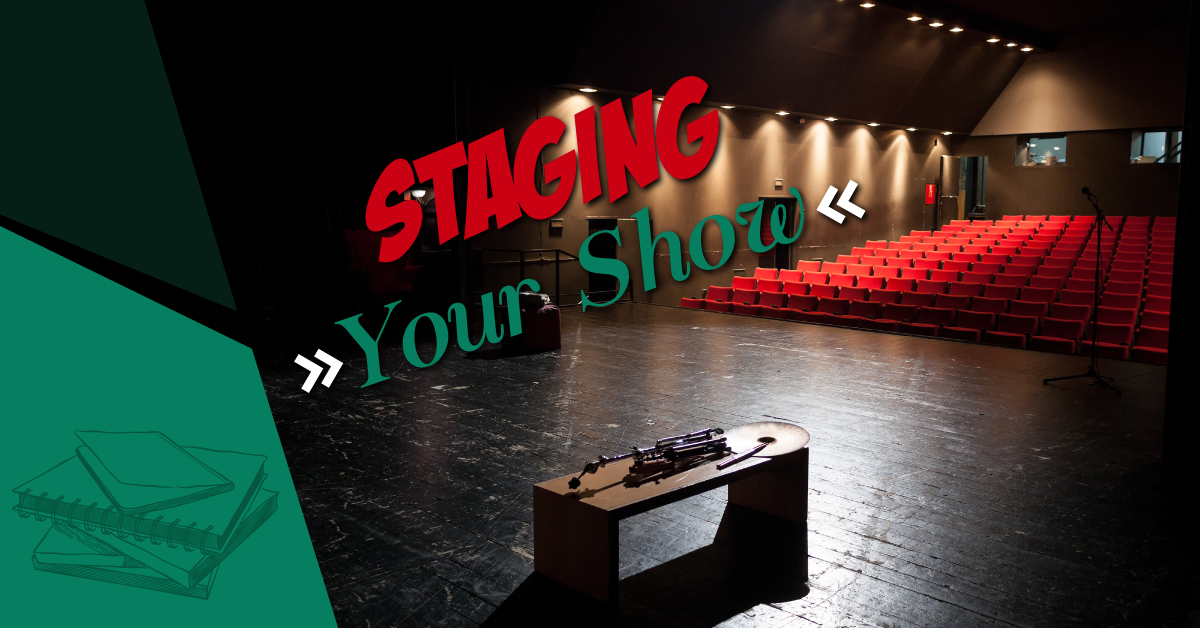Staging Your Show: “Same Show, Different Stages” Exercise
Different venues can have a huge effect on a production. They can create beautiful and intriguing staging options for directors and designers, and really surprise and enchant audiences. They can also pose many challenges to the production.
For this exercise, students will compare and contrast different types of stages/venues and look at how different stages can affect how a show is performed. This exercise will help students think outside the box and come up with creative ideas about staging a show.
Types of Stages
Here are seven different types of stages/venues that shows could be performed on/in:
- Proscenium stage (stage facing the audience, straight on)
- Traverse stage (stage is surrounded on two sides by the audience)
- Thrust stage (stage is surrounded on three sides by the audience)
- Theatre in the round or arena stage (stage is surrounded by audience on all sides)
- Black box theatre (a simple, unadorned performance space, usually a large square room with black walls and a flat floor)
- Outdoor venue (student’s choice as to exactly where the outdoor venue is)
- Site-specific or alternative venues (like a show set in a warehouse, hotel, hospital, etc.)
Pre-Knowledge
You might want to start this exercise by showing pictures of the seven types of stages. Project them on a screen so everyone can see.
Instruction
1. Students select partners. Have each pair select a play or musical that they would be interested in staging. Each partner will then draw out of a hat one of the seven stages/venues listed above. That way, each pair has two different locations to compare.
2. Students will create a pro and con list for both venues they selected, comparing and contrasting strengths/weaknesses and advantages/disadvantages. Students should aim for a minimum of three pros and three cons per stage/venue. Here’s an example:
Romeo & Juliet on a Thrust Stage PROS CONS
- Easy to create a large unit set.
- Can have a huge audience; lots of seating available around the stage.
- Reminiscent of Stratford Festival, which is a classic venue for this kind of show.
- Blocking is challenging on a thrust stage (sightline concerns; need to ensure all audience members can see properly).
- Stage combat is also difficult to stage on a thrust stage (audience all around = more angles to see fake punches/slaps).
- Where to store large set pieces? Romeo & Juliet in an Outdoor Venue PROS CONS
- A great option for a special summer show (i.e. “Shakespeare in the Park” – marketing perk).
- Could have a real balcony for the balcony and garden scenes.
No need to create extensive sets if we use a venue that is already beautiful (i.e. university courtyard).
What if it rains?
Can be difficult to hear outside; actors will really have to project.
Do we need special permission and/or a permit to perform stage combat outdoors (could be perceived as violence)?
3. Once students have created their charts, each pair will join another pair (to make a group of four) and the groups will share their charts with each other as well as make suggestions and thoughts. Once each group has completed their discussions, students will complete an individual reflection.



